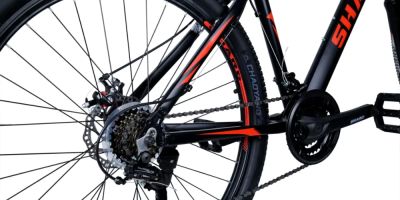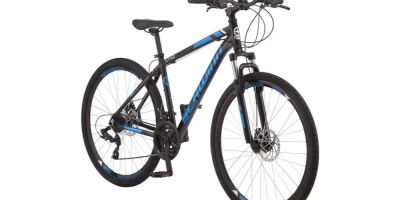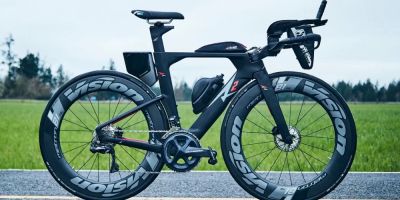- 1-Understanding-Pedal-Assist-Electric-Bikes
- 2-Benefits-of-Pedal-Assist-Modes
- 3-Types-of-Pedal-Assist-and-Technology
- 4-Real-World-Experience-and-User-Stories
- 5-Choosing-the-Right-Electric-Bike-with-Pedal-Assist
- 6-Resources-for-Purchase-and-Support
1. Understanding Pedal Assist in Electric Bikes: How It Works and Why It Matters
Electric bikes with pedal assist modes combine traditional pedaling with electric power, creating a smooth, responsive riding experience. Unlike throttle-only e-bikes that rely solely on the motor for propulsion, pedal assist requires the rider to pedal, with the motor amplifying their effort based on selected assistance levels. This synergy allows riders to enjoy longer rides with less fatigue, tackle hills with ease, and maintain a more natural cycling rhythm.
The core of this technology lies in sensors that detect pedaling speed, force, or cadence, adjusting the motor's output in real time. This responsiveness ensures the bike feels intuitive, making it accessible for beginners while still appealing to seasoned cyclists seeking efficiency.

Mike's Bikes of Berkeley
1824 University Ave, Berkeley, CA 94703, USA
2. The Benefits of Pedal Assist Modes for Every Rider
Pedal assist modes offer multiple advantages that enhance the cycling experience:
- Reduced Physical Strain: Especially beneficial for commuting or longer rides, pedal assist reduces muscle fatigue and joint stress, enabling riders of varying fitness levels to enjoy cycling.
- Improved Range and Speed Control: Riders can select assistance levels tailored to terrain or energy, extending travel distances without overexertion.
- Eco-Friendly Transportation: By encouraging bike use over motor vehicles, pedal assist bikes contribute to reducing carbon footprints while promoting healthy activity.
- Enhanced Safety: Maintaining pedal control while receiving power boosts allows for better maneuverability and balance compared to throttle-only models.
These benefits make pedal assist electric bikes versatile, suited for city streets, recreational trails, or hilly commutes.

Mike's Bikes of Berkeley
1824 University Ave, Berkeley, CA 94703, USA
3. Exploring Different Pedal Assist Technologies and Modes
Pedal assist systems vary, primarily distinguished by the types of sensors used and the levels of assistance offered. Key technologies include:
- Cadence Sensors: Detect when pedaling starts and stops, providing a steady, preset motor output. This system offers simplicity but can feel less smooth during speed changes.
- Torque Sensors: Measure the force applied to pedals, adjusting motor power proportionally. This delivers a more natural, responsive ride that mirrors the rider’s effort closely.
Most e-bikes feature multiple assist levels—from eco to turbo—allowing riders to customize power delivery. Advanced models integrate smartphone apps to monitor battery life, trip data, and customize assist settings for a personalized experience.
4. Real-World Experiences: Stories Behind Pedal Assist E-Bikes
Jessica, an urban commuter, shares her transformation after switching to an electric bike with pedal assist modes. “Before, hills were my nemesis, and I often felt exhausted after work rides. Now, I choose medium assist to breeze up slopes, arriving fresh and energized,” she explains. Jessica’s story illustrates how pedal assist empowers riders to enjoy cycling daily without physical strain.
Similarly, Tom, a recreational cyclist in his 60s, found pedal assist essential in extending his riding range. “It’s like having a gentle partner pushing me forward, helping me explore new trails I couldn’t manage before,” Tom says. These personal accounts highlight how pedal assist technology broadens cycling’s appeal across ages and abilities.
5. Selecting the Ideal Electric Bike with Pedal Assist: What to Consider
Choosing the right pedal assist electric bike depends on several factors:
- Purpose: Commuting, recreation, or sport? Your intended use guides motor power, battery capacity, and frame design choices.
- Assist Levels and Sensors: Torque sensors offer a smoother, more natural feel but often come at a higher cost compared to cadence sensor models.
- Battery Range: Consider typical ride distances and terrain to select adequate battery capacity for uninterrupted journeys.
- Comfort and Features: Look for ergonomic seats, adjustable handlebars, and integrated lighting for safety and convenience.
Trying different models and consulting experts can make the decision easier. Tailored advice ensures you find a bike that fits your lifestyle and maximizes the benefits of pedal assist modes.
6. Finding Reliable Products and Support for Pedal Assist Electric Bikes
For those ready to embrace the benefits of electric bikes with pedal assist modes, Healthy Cycling offers a trusted platform featuring a wide range of quality e-bikes, accessories, and expert advice. Whether you seek beginner-friendly models, high-performance options, or maintenance services, Healthy Cycling connects you to the best products and support available.
Exploring this resource ensures a confident purchase and a rewarding cycling experience enhanced by cutting-edge pedal assist technology.










